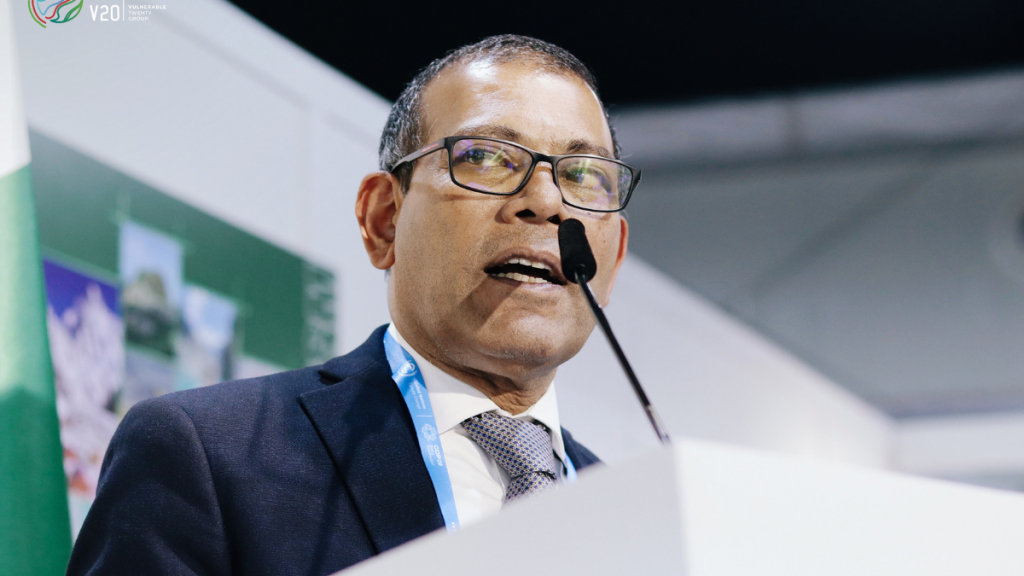Against the backdrop of a different global landscape, a multi-polar world, a global climate crisis, worsening debt burdens, outdated international financial policies, persistent joblessness, and a growing cost of living crisis – over the last two decades, CVF-V20 economies have lost $525 billion. The costs of climate change are real for us and have been for many years.
As the sentiments of least developed countries and small island states point out, the fissures of disagreement appear to be widening, ironically, as the climate crisis is hammering home the grave necessity of concerted action and solidarity.
The core goal of $300 billion is not enough. We view this as the first installment of a larger payment cycle for climate vulnerable countries.
In that context, I welcome the Baku to Belem Roadmap to USD$ 1.3 trillion. The process has provided the right signal in terms of the magnitude of the challenge and the size of the opportunity in our hands.
The member countries of the Climate Vulnerable Forum bear the brunt of climate change, facing disproportionate impacts, high cost of capital, unsustainable debt burdens, lack of fiscal space, and lack of technology access. It should not surprise anyone that our recovery times are longer, and they are interrupted by climate disasters in between.
We look forward to working with the Presidencies to ensure that the Roadmap is designed to meet the needs of the climate vulnerable nations.
I am particularly pleased to see the recognition of the need to create fiscal space to support climate action. Climate vulnerable economies have been stuck in a debt-climate spiral and we need to make debt work for climate.
I welcome the calls to simplify access to finance through multilateral climate funds; the funds now must respond by coming forward with streamlined processes that get money flowing to our priorities. I welcome the commitment to triple annual outflows from the multilateral climate funds.
This decision doesn’t go far enough to rectify the major shortfalls in adaptation funding. Public finance for adaptation and loss and damage is critical.
We continue to maintain that concessional finance is crucial. Affordable, high quality low-cost, long term finance will be vital. We will expect to see a large portion of climate finance goal delivered in the form of concessional finance.
Large developing economies should not wait until the last moment to reach out. Listening mode is key, in particular to address questions of vulnerability and finance that, when addressed, can only build greater solidarity rather than leave blinders intact and reinforce artificial division. Countries like China have a greater role in bringing everyone inside the tent and restore badly harmed trust. Active collaboration of countries like China, Brazil and South Africa with climate vulnerable countries can only yield more meaningful outcomes in the global advocacy for international finance architecture reform; working together is vital if we are to untangle the myopic, climate-bankrupting business-as-usual finance strategies still propped up today by purveyors of inaction.
Today’s decision recognizes cost of capital as a major barrier. Climate vulnerable economies face a risk premium which is a major disenabler of climate action. We invite international financial institutions to work with us to develop instruments that can reduce the cost of capital and get finance flowing to help secure a climate prosperous future.


